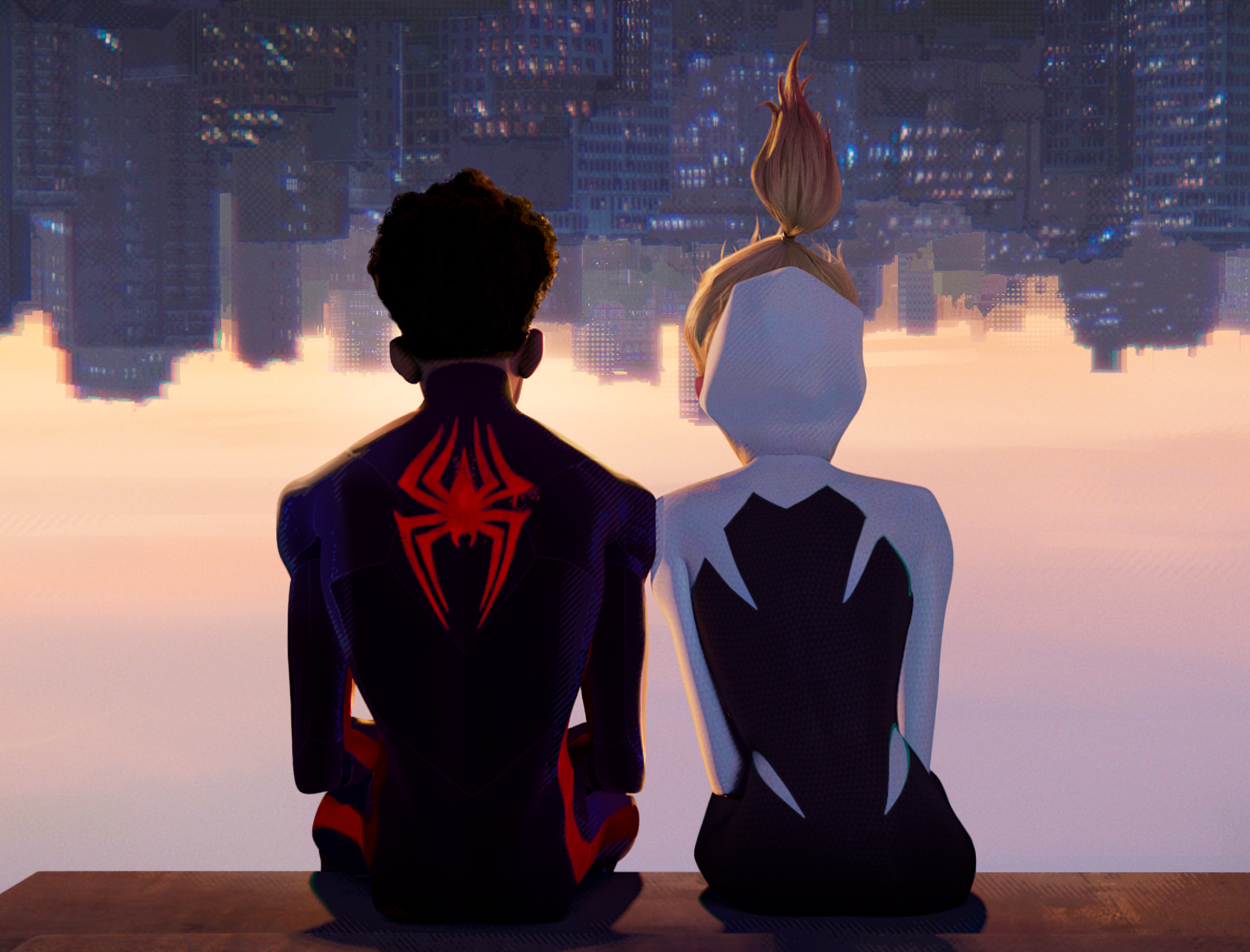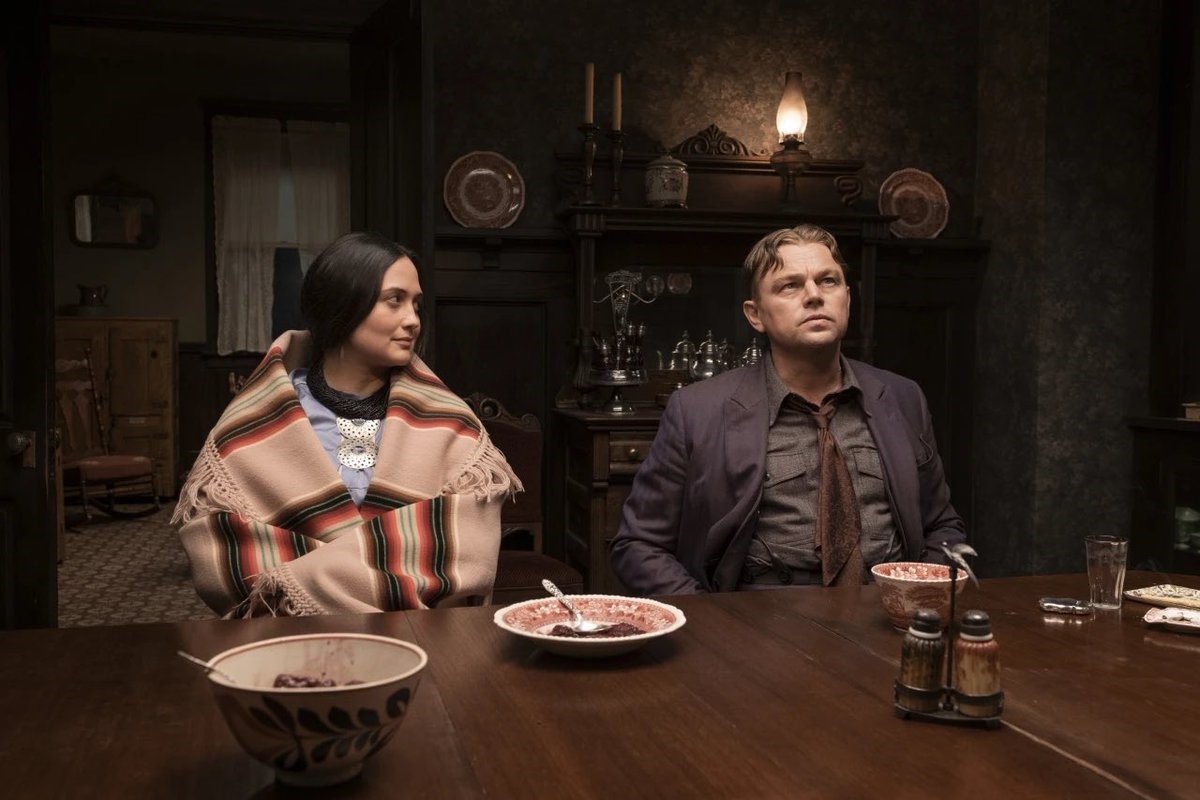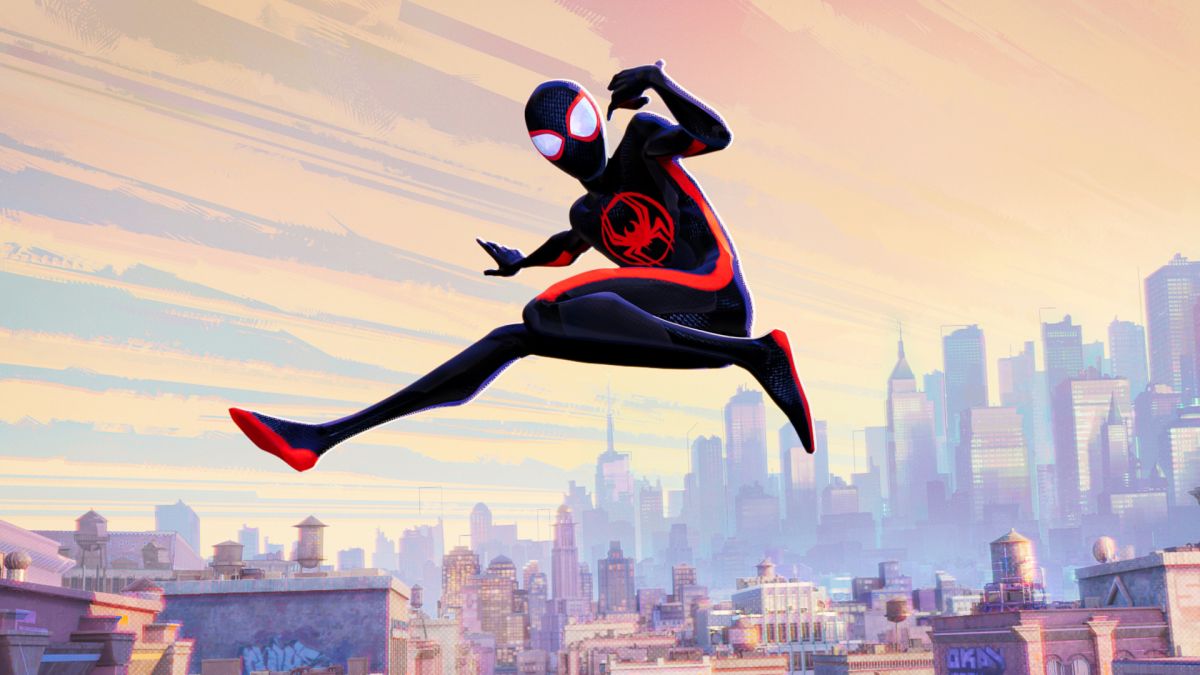VERDICT: Breathtaking maximalism, for fans of ‘RRR’ and ‘Everything Everywhere All at Once’ (not to mention the previous animated Spider-Man movie).
By: Alonso Duralde for The Film Verdict
In the interim between 2018’s Spider-Man: Into the Spider-Verse and 2023’s Spider-Man: Across the Spider-Verse, global movie audiences have been introduced to the wonders of RRR and Everything Everywhere All at Once, and it’s hard not to think of these four films as heralding some kind of cinematic wave of neo-maximalism.
Combining the mind-blowing infinite inter-dimensionality of Everything Everywhere with RRR’s go-for-broke action sequences — all edited to a pace that makes Dziga Vertov look like Béla Tarr — Across the Spider-Verse is a breathtaking whirligig of a superhero saga, spanning multiple realities without ever losing its emotional tether.
While the original The Avengers seemed like the first movie to successfully translate from page to screen the thrill of seeing beloved superheroes teaming up against a common enemy, Across the Spider-Verse understands the joy of getting a big stack of comic books featuring one character, dumping them on the ground, and reading them all in one sitting (and not necessarily in order): The drawing style and color palette may change, the tone might abruptly shift from whimsical to grim, but at the heart of that experience is watching a character stay true to themselves and their personal code no matter what the iteration. It is, in fact, that essential character throughline that forms the basis of the plot here, but more on that in a moment.
We begin with Spider-Gwen (voiced by Hailee Steinfeld), the Spider-Man of her particular world; she’s called in to battle The Vulture (Jorma Taccone) — but it’s not a Vulture she’s never seen before. (This one seems to have flown out of a Da Vinci drawing.) Popping in to help out are Spider-Man 2099, aka Miguel O’Hara (Oscar Isaac), and Spider-Woman/Jessica Drew (Issa Rae), who informs Gwen that the events of Into the Spider-Verse left big, porous holes in the fabric of the multiverse that they are still trying to fix.
Meanwhile, on another Earth, Miles Morales (Shameik Moore) finds his relationship with his parents Rio (Luna Lauren Velez) and Jeff (Brian Tyree Henry) ever more strained because of his need to keep his identity as Spider-Man a secret from them. (Gwen’s having the same issues with her dad — like Jeff, he’s also a policeman — voiced by Shea Whigham.)
Miles is grappling with a new foe, The Spot (Jason Schwarzman), created by the previous movie’s reactor explosion, and while at first, he’s unable even to steal the money out of an ATM, continued exposure to other reactors (in other dimensions) turn him into a deadly threat to the entire multiverse.
After Gwen tries and fails to capture The Spot in Miles’ dimension, he tags along after her to The Spot’s next stop, an Indian version of New York known as Mumbaihattan, where they fight alongside Earth’s Spider-Man, Pavitr Prabhakar (Karan Soni); Miles saves the local police captain from dying in the process of saving a child, and in doing so violates canon, which could send ripples throughout the already-fragile multiple planes of existence.
Can Miles chart his own path — and save the life of his father, who’s just been promoted to the captain himself — or are all Spider-Men and -Women (and -Cars and -Pigs) fated to suffer the same tragedies?
You won’t find answers here — the film ends on a cliffhanger, with resolution presumably arriving in 2024’s Spider-Man: Beyond the Spider-Verse — but even if viewers have to wait a year for the payoffs, the setups here are no less enjoyable. Director Joaquim Dos Santos, Kemp Powers (Soul), and Justin K. Thompson step into the director’s chair this time, but if the Spider-Verse movies have a guiding voice, it’s that of Phil Lord and Christopher Miller, who (co-writing with Dave Callaham) infuse the film with their trademark of a blend of deconstructionist humor for kids, all-bets-are-off action, and visual mayhem.
(And while The Mitchells vs. the Machines, which Lord and Miller produced, offered an actual LGBTQ teen, there’s definitely a queer reading in Gwen and Miles fearing that their respective parents would no longer love them if they were to reveal they’re true identities.)
The idea of the multiverse, long a staple of comics, has crept its way into other media, from The CW’s Arrow and The Flash series to the post-WandaVision MCU and the Daniels’ Oscar-winning hit. But the idea that every Spider-Man must suffer the same losses allows the film to lob puckish targets at comics fandom rigidity, where any violation of canon is equivalent to the unraveling of the universe.
At the same time, it allows Miles to stand out in a universe of Peter Parkers (many of whom, including the previous film’s dad-bod version voiced by Jake Johnson, turn up in a central multiverse meeting point here).
The team of animators offers an explosion of styles and designs — often, the frame will contain a CG character next to one who looks hand-drawn next to one made entirely of newspaper Zip-A-Tone dots. (This installment of the series introduces to the screen Spider-Punk, voiced by Daniel Kaluuya, who appropriately looks like he stepped out of the pages of a photocopied zine.)
Across the Spider-Verse seems determined to test the limits of what the human eye can take and the human brain can perceive, traveling just at the edge of visual cacophony. (That’s not to say there aren’t a few packed frames I’ll need to look at someday on a paused Blu-ray.)
There are, inevitably, a few moments where viewers will feel the 140-minute running time, a lengthy one by animated standards. But given how breathlessly exciting and funny and event-packed Across the Spider-Verse so often is, it’s inevitable that the film has to pause and exhale every so often.
- Director: Joaquim Dos Santos, Kemp Powers, Justin K. Thompson
- Screenwriters: Phil Lord & Christopher Miller & David Callaham
- Cast: Shameik Moore, Hailee Steinfeld, Brian Tyree Henry, Luna Lauren Velez, Jake Johnson, Jason Schwartzman, Issa Rae, Karan Soni, Daniel Kaluuya, Oscar Isaac
- Producers: Avi Arad, Amy Pascal, Phil Lord, Christopher Miller, Christina Steinberg
- Executive producers: Bob Persichetti, Peter Ramsey, Rodney Rothman, Aditya Sood, Brian Michael Bendis
- Production design: Patrick O’Keefe
- Costume design: Brooklyn El-Omar
- Editing: Mike Andrews
- Music: Daniel Pemberton
- Sound: James Morioka, dialogue supervisor; Colin Lechner, foley supervisor
- Production companies: Columbia Pictures, Sony Pictures Animation in association with Marvel
- In English













